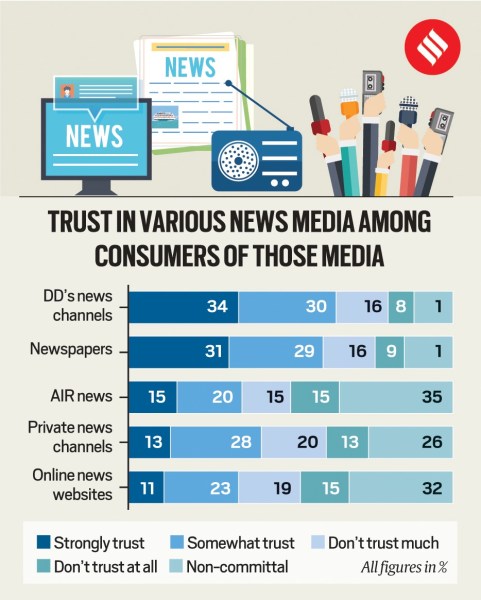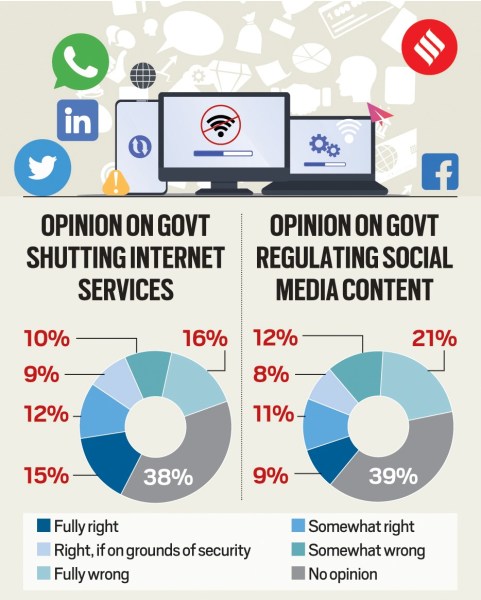[ad_1]
The findings of a nationwide survey by the Centre for Developing Societies (CSDS) show that there are not many takers for the principle that people should be free to express their views against the government or ideas that are deemed “offensive” on social media platforms.
These were part of a media consumption behaviour survey, which also found that even though television is the main source of news for most, newspapers and the public broadcaster Doordarshan enjoy far more trust among the people than private news channels.
“Most of the survey respondents were found to carry what could be considered as conservative or illiberal opinions on the issue of free speech and expression on social media,” states the survey, carried out carried out by the Lokniti programme of the Centre for the Study of Developing Societies in partnership with Konrad Adenauer Stiftung (KAS).

There were 7,463 respondents, aged 15 and above, in 19 states, across rural and urban areas. Asked if a person should be free to express an idea, even if it is offensive, 26 per cent said they fully disagree, while 14 per cent said they somewhat disagree. Nine per cent spoke in complete favour, while 15 per cent said they somewhat agree.
The responses to the question on whether a person should have the freedom to express opinion against the government on social media, however offensive or objectionable it may be, also threw up similar trends.
Consider this: 20 per cent of all respondents said they fully disagree with the idea that there should be complete freedom to express opinions against the government on social media. Sixteen per cent said they somewhat disagree and an equal number said they somewhat agree and 11 per cent said they are in complete agreement.
A spillover of the similar sentiment could be seen on the question of government surveillance as well, which, the report pointed out, was acknowledged but not considered immoral by many, as the same people responded they see nothing wrong with it.

“Social media users were far more likely to be against than in favour of the idea of the government determining what can or cannot be posted on social media or WhatsApp,” notes the report.
On the specific aspect of modes of media consumption, it emerged in the survey that the gap between the number of consumers of newspapers and TV news channels have “widened further”, with TV “nearly seven times more dominant”.
Newspapers, however, fare better than news websites, according to the survey, which based its conclusion on the fact that half of all respondents reported reading a newspaper, while two-fifths said they browse news and current affairs websites.
[ad_2]
Source link


